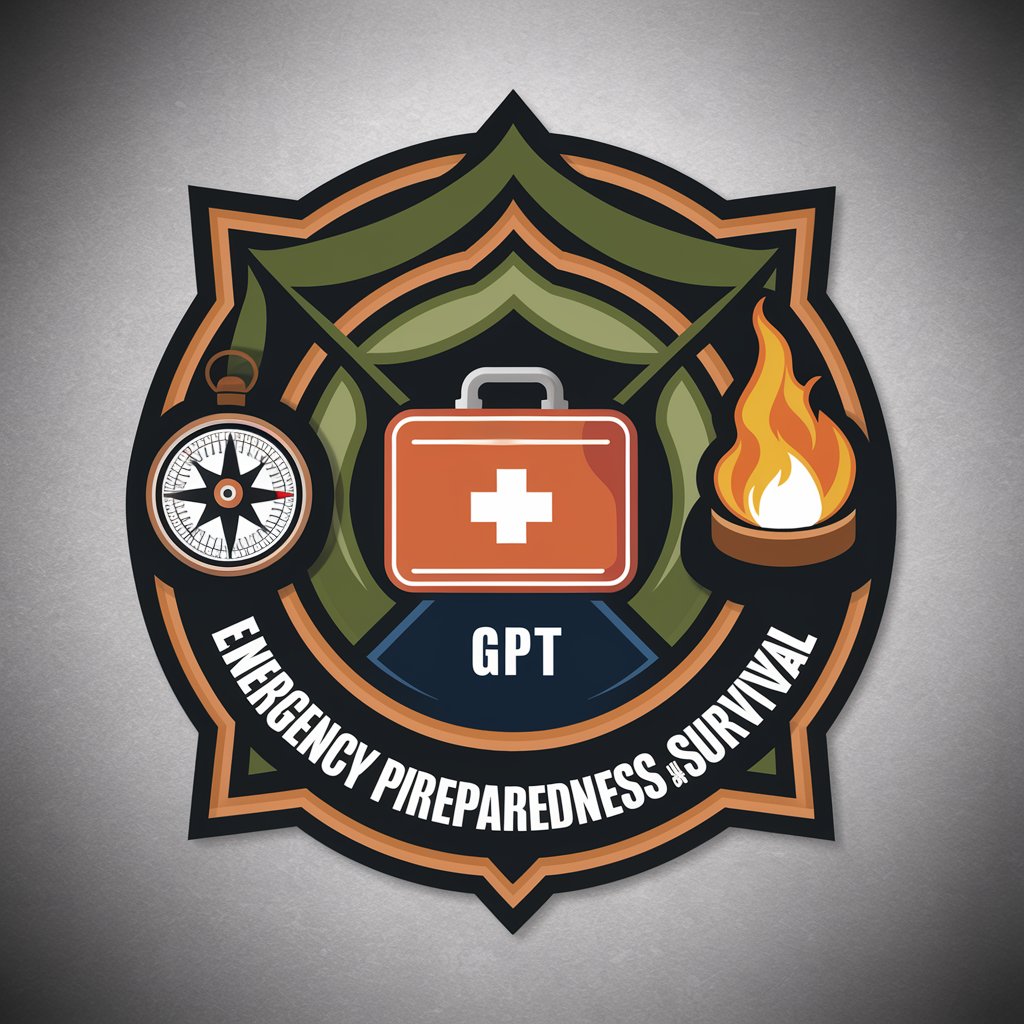6 GPTs for Evacuation Planning Powered by AI for Free of 2026
AI GPTs for Evacuation Planning are advanced tools designed to assist in the creation, analysis, and optimization of evacuation plans using the capabilities of Generative Pre-trained Transformers (GPTs). These tools leverage the power of AI to process and analyze vast amounts of data related to evacuation scenarios, including geographical, demographic, and infrastructural data, to generate efficient and effective evacuation strategies. Their relevance lies in the ability to provide tailored solutions for emergency management, disaster response, and urban planning, ensuring quick, safe, and efficient evacuation processes.
Top 6 GPTs for Evacuation Planning are: Emergency Prep Helper,BHV Quiz Whiz,Hurricane Helper,Fire Safety,Hyperloop Safety Guide,Emergency GPT
Emergency Prep Helper
AI-Powered Emergency Readiness

BHV Quiz Whiz
AI-powered BHV Learning Reinvented

Hurricane Helper
Empowering hurricane preparedness with AI

Fire Safety
Empowering Safety with AI

Hyperloop Safety Guide
Ensuring Safe Hyperloop Journeys with AI

Emergency GPT
Stay Safe with AI-Powered Preparedness

Key Attributes of Evacuation Planning AI Tools
AI GPTs for Evacuation Planning stand out due to their adaptability, offering solutions that range from generating basic evacuation route maps to complex scenario analyses incorporating real-time data. Unique features include natural language processing for easy interaction, technical support for data integration, web searching capabilities for updated information, image creation for visual route mapping, and advanced data analysis for optimizing evacuation strategies. These tools can adapt their functionality based on the complexity of the evacuation scenario, ensuring that both straightforward and intricate requirements are met with precision.
Who Benefits from Evacuation Planning AI
The primary beneficiaries of AI GPTs for Evacuation Planning include emergency management professionals, urban planners, and disaster response teams. However, these tools are also highly accessible to novices interested in understanding evacuation planning, providing user-friendly interfaces that do not require coding skills. For developers and technical experts in the field, they offer advanced customization options, enabling the creation of bespoke solutions tailored to specific evacuation scenarios and requirements.
Try Our other AI GPTs tools for Free
Biome Integration
Explore the cutting-edge AI GPTs for Biome Integration, revolutionizing ecosystem analysis and conservation with advanced predictive models and tailored solutions.
Sample Preparation
Discover AI GPT tools for Sample Preparation, revolutionizing sample analysis with automated, intelligent solutions for researchers and scientists.
Specimen Identification
Explore the transformative power of AI GPTs in Specimen Identification, enhancing accuracy and efficiency in scientific research and environmental studies.
Microscopy Education
Revolutionize microscopy education with AI GPTs - interactive, adaptable tools designed to enhance learning, analysis, and research in the microscopic realm.
Image Capturing
Explore AI GPT tools for Image Capturing: revolutionizing visual data analysis and creation with advanced AI technology for professionals and hobbyists alike.
Motivational Training
Discover how AI GPTs are transforming motivational training with personalized, dynamic coaching tailored to your growth journey.
Further Perspectives on AI-Driven Evacuation Planning
AI GPTs for Evacuation Planning represent a significant advancement in disaster response and emergency management. Their ability to offer customized solutions across various sectors, coupled with user-friendly interfaces, makes them a valuable tool in enhancing the efficiency and effectiveness of evacuation processes. Furthermore, the potential for integration with existing systems opens up new avenues for creating more resilient and responsive urban environments.
Frequently Asked Questions
What exactly are AI GPTs for Evacuation Planning?
They are AI-powered tools that use Generative Pre-trained Transformers to assist in the development and optimization of evacuation plans, analyzing various data to propose effective strategies.
How can these tools adapt to different evacuation scenarios?
Through advanced algorithms, they can process varying levels of complexity in data, adapting their output from simple evacuation routes to comprehensive emergency management strategies.
Do I need programming skills to use these tools?
No, these tools are designed with user-friendly interfaces, making them accessible to individuals without coding expertise. However, they also provide customization options for those with programming knowledge.
Can these tools integrate with existing systems?
Yes, many AI GPTs for Evacuation Planning are designed to be compatible with existing emergency management and urban planning systems, allowing for seamless integration and data sharing.
What makes AI GPTs better than traditional evacuation planning methods?
AI GPTs can process and analyze data at a scale and speed that far surpasses traditional methods, offering insights and strategies based on real-time data and advanced simulations.
Are there customization options for professional users?
Yes, professionals can access a range of customization options, allowing them to tailor the tools' functionalities to meet specific needs and scenarios in evacuation planning.
How do these tools handle real-time data?
They are equipped with web searching and data analysis capabilities, enabling them to incorporate real-time information into evacuation strategies for more accurate and effective planning.
What types of data do these tools analyze?
These tools analyze a wide range of data, including geographical, demographic, infrastructural, and real-time event data, to create comprehensive evacuation plans.